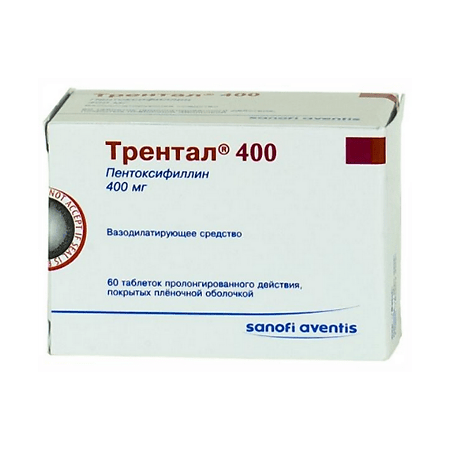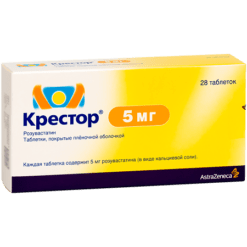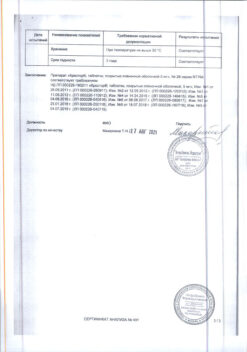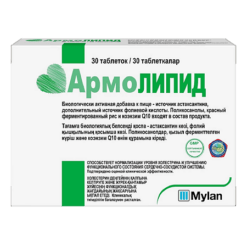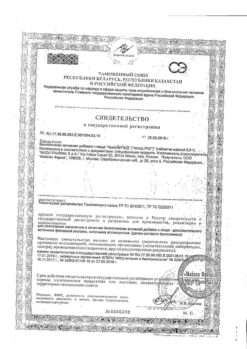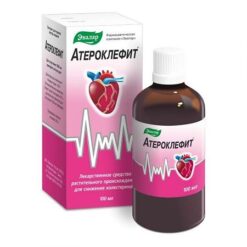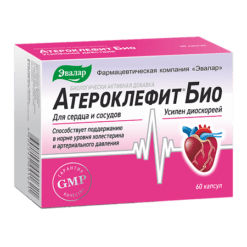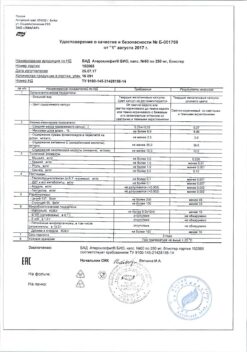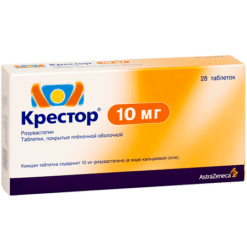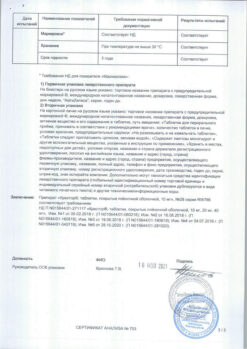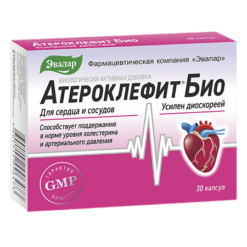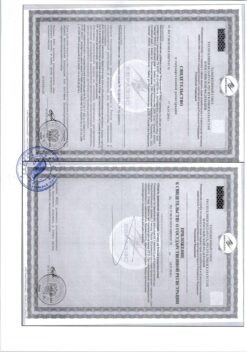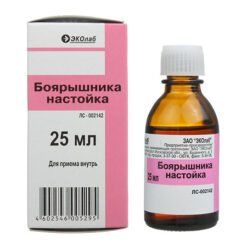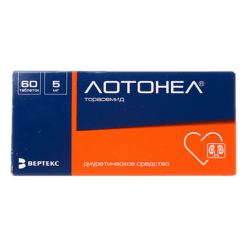No products in the cart.
Trental 400,400 mg 60 pcs
€62.37 €51.98
Description
Normalizing blood rheological properties, improving microcirculation, vasodilator.
Indications
Indications
Peripheral circulatory disorders of atherosclerotic origin (for example, intermittent claudication);
diabetic angiopathy;
trophic disorders (for example, leg ulcers, gangrene);
cerebrovascular accidents (consequences of cerebral atherosclerosis, such as impaired concentration, dizziness, memory impairment);
ischemic and post-stroke conditions; circulatory disorders in the retina and choroid;
otosclerosis;
degenerative changes against the background of pathology of the vessels of the inner ear and hearing loss.
Pharmacological effect
Pharmacological effect
Normalizing the rheological properties of blood, improving microcirculation, vasodilating.
Special instructions
Special instructions
Careful monitoring is necessary in patients with severe cardiac arrhythmias (risk of worsening arrhythmia), arterial hypotension (risk of further decrease in blood pressure), impaired renal function with creatinine clearance less than 30 ml/min (risk of accumulation and increased risk of side effects), severely impaired liver function (risk of accumulation and increased risk of side effects) and an increased tendency to bleeding, for example, when using anticoagulants or in cases of disorders in the blood coagulation system (risk of developing more severe bleeding).
Caution should be exercised when prescribing Trental to patients with a history of gastric and duodenal ulcers; patients who have recently undergone surgery (the risk of bleeding is increased, and therefore systematic monitoring of hemoglobin and hematocrit levels is necessary).
For patients with arterial hypotension and labile blood circulation, parenteral administration of Trental is prescribed gradually, since a decrease in blood pressure (up to collapse) and, in some cases, attacks of angina pectoris are possible. Patients with heart failure require appropriate treatment to compensate for blood circulation. In this case, large volumes of liquids should be avoided.
For patients with impaired renal function, the dosage regimen should be selected individually.
Active ingredient
Active ingredient
Pentoxifylline
Composition
Composition
film-coated slow-release tablets. 1 tablet contains:
Active substance:
pentoxifylline 400 mg;
Excipients:
hydroxyethylcellulose,
polyvinylpyrrolidone,
talc,
magnesium stearate,
hydroxypropyl methylcellulose,
benzyl alcohol,
polyethylene glycol 6000,
titanium dioxide
Contraindications
Contraindications
Hypersensitivity to the components of the drug;
massive bleeding;
extensive hemorrhages in the retina;
cerebral hemorrhages;
acute myocardial infarction;
severe arrhythmias;
severe atherosclerotic lesions of the coronary or cerebral arteries;
uncontrolled arterial hypotension;
age under 18 years;
pregnancy and lactation (breastfeeding);
hypersensitivity to other methylxanthines.
Use with caution in patients with:
arterial hypotension (risk of decreased blood pressure), chronic heart failure, impaired renal function – CC less than 30 ml/min (risk of accumulation and increased risk of side effects), with severe liver dysfunction (risk of accumulation and increased risk of side effects), increased tendency to bleed, including as a result of the use of anticoagulants or with disorders of the blood coagulation system (risk of more severe bleeding), after recent surgical interventions.
Side Effects
Side Effects
From the nervous system: headache, dizziness, anxiety, sleep disturbances, convulsions.
From the skin and subcutaneous fat: facial skin flushing, flushing of the face and upper chest, swelling, increased brittleness of nails.
From the digestive system: xerostomia, anorexia, intestinal atony, a feeling of pressure and fullness in the stomach, nausea, vomiting, diarrhea.
From the cardiovascular system: tachycardia, arrhythmia, cardialgia, progression of angina pectoris, decreased blood pressure.
From the hemostatic system and hematopoietic organs: leukopenia, thrombocytopenia; pancytopenia, bleeding from blood vessels of the skin, mucous membranes, stomach, intestines, hypofibrinogenemia.
From the senses: blurred vision, scotoma.
Allergic reactions: itching, skin hyperemia, urticaria, angioedema, anaphylactic shock.
Interaction
Interaction
When used together, Trental potentiates the effect of a number of antihypertensive and hypoglycemic agents (both insulin and oral hypoglycemic drugs).
Taking pentoxifylline and theophylline at the same time may increase the level of theophylline in the blood and increase its side effects.
Overdose
Overdose
Symptoms: dizziness, retching, drop in blood pressure, tachycardia, arrhythmia, redness of the skin, loss of consciousness, chills, areflexia, tonic-clonic convulsions.
If the symptoms mentioned above develop, you should immediately consult a doctor. Treatment: symptomatic. Particular attention should be paid to maintaining blood pressure and respiratory function.
Convulsive seizures are relieved by the administration of diazepam. When the first signs of overdose appear (excessive sweating, nausea, cyanosis), immediately stop taking the drug.
Provides a lower position for the head and upper body. Monitor the free patency of the airways.
Storage conditions
Storage conditions
In a dry place, at a temperature not exceeding 25 °C
Shelf life
Shelf life
4 years
Manufacturer
Manufacturer
Zentiva Private Limited, India
Additional information
| Shelf life | 4 years |
|---|---|
| Conditions of storage | In a dry place, at a temperature not exceeding 25 °C |
| Manufacturer | Zentiva Private Limited, India |
| Medication form | sustained release tablets |
| Brand | Zentiva Private Limited |
Related products
Buy Trental 400,400 mg 60 pcs with delivery to USA, UK, Europe and over 120 other countries.

